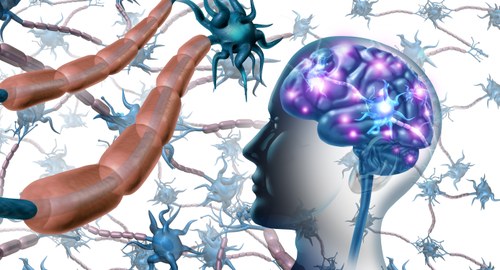
Adult-onset autosomal dominant leukodystrophy (ADLD) is a rare and fatal neurodegenerative disease that affects myelin in the central nervous system, leading to autonomic system dysfunction, ataxia, and mild cognitive impairment. ADLD is caused by alterations in the LMNB1 gene, which encodes lamin B1, a nuclear lamina protein, resulting in its accumulation. Currently, no therapy is available to cure or slow disease progression. The study of the molecular mechanisms underlying ADLD is still in its early stages. Recently, we have demonstrated that cellular alterations in ADLD patients primarily affect astrocytes, which exhibit nuclear abnormalities and increased immunoreactivity, suggesting significant distress in this specific cell population. This, in turn, may negatively impact the production and maintenance of myelin by oligodendrocytes. However, a comprehensive characterization of patients is still lacking. To address this, ongoing efforts include the development of innovative ex vivo patient-specific cellular and organoid models, as well as the analysis of patient biofluids to investigate the morphological, molecular, genetic, and clinical characteristics of different patient groups. Additionally, our goal is to characterize the molecular mechanisms driving demyelination progression and to identify biomarkers in patient biofluids. This will help in defining novel therapeutic strategies aimed at reducing lamin B1 levels, ultimately providing accurate clinical assessment and potential treatment options for patients and their families.